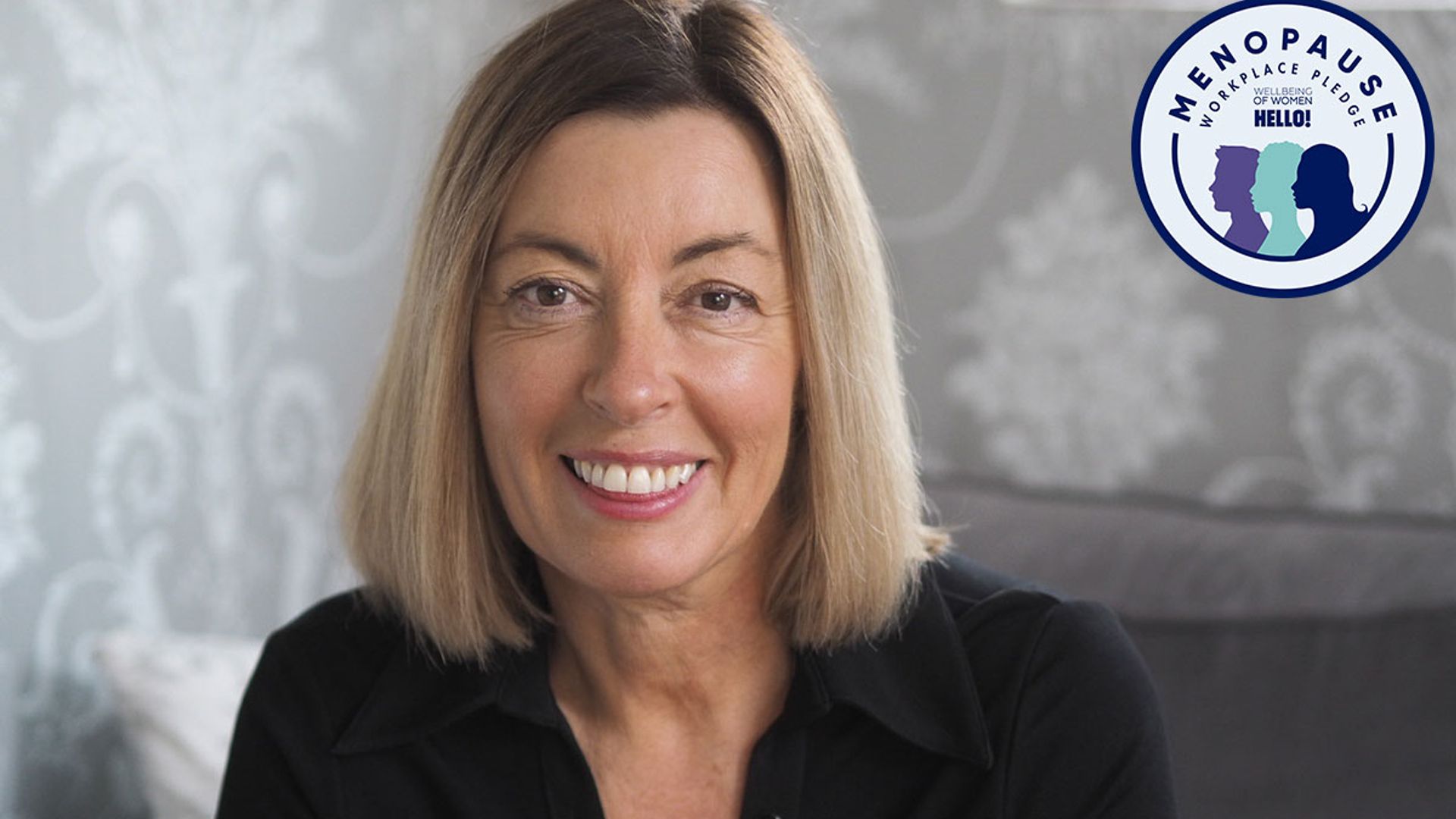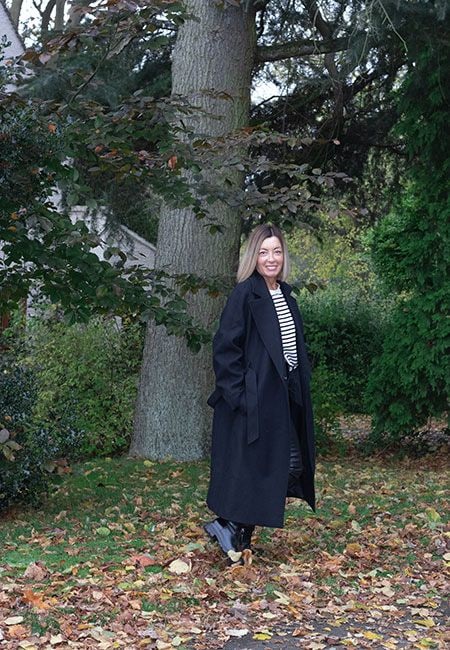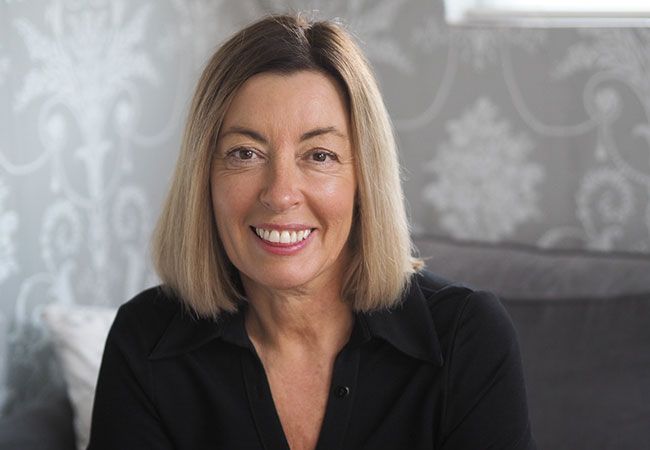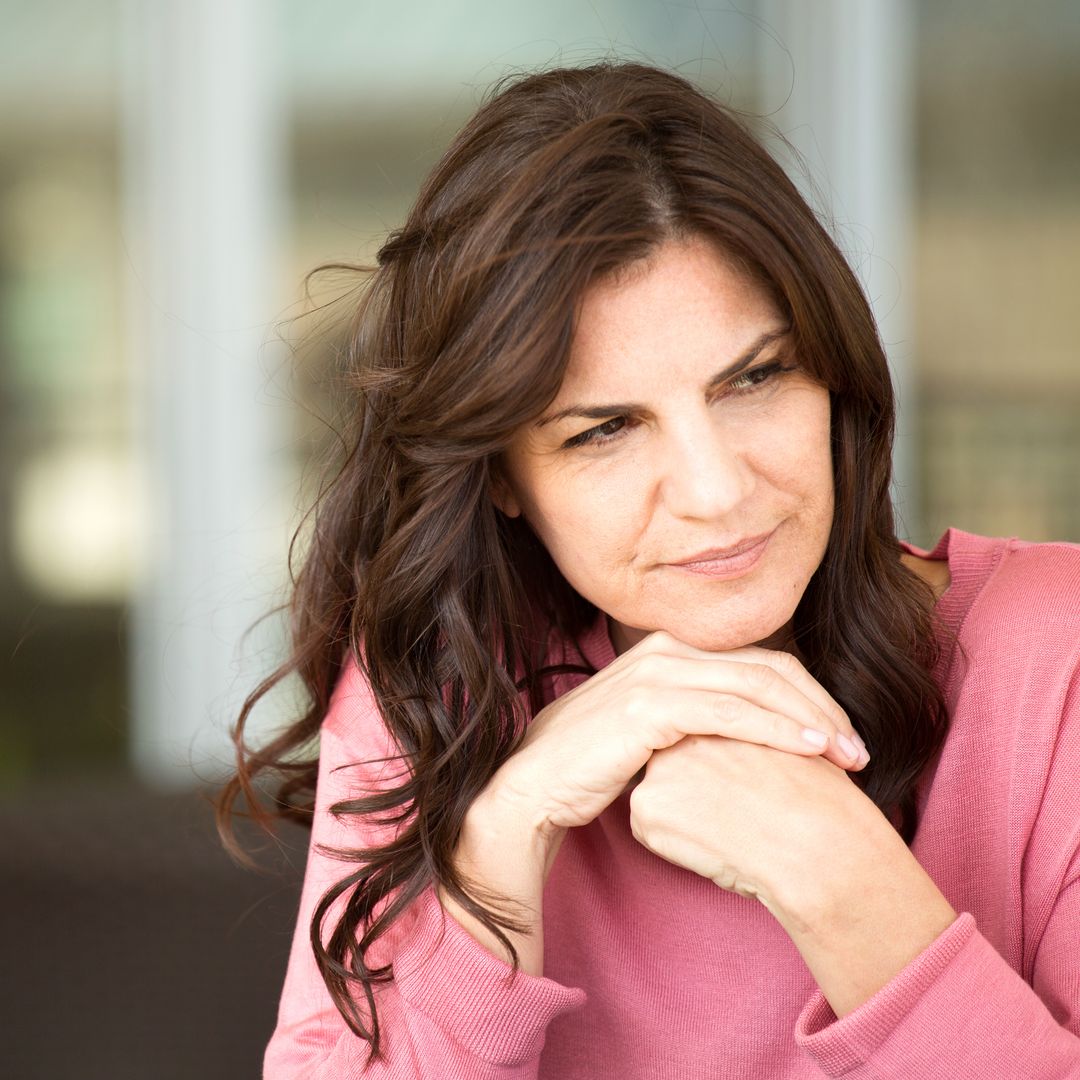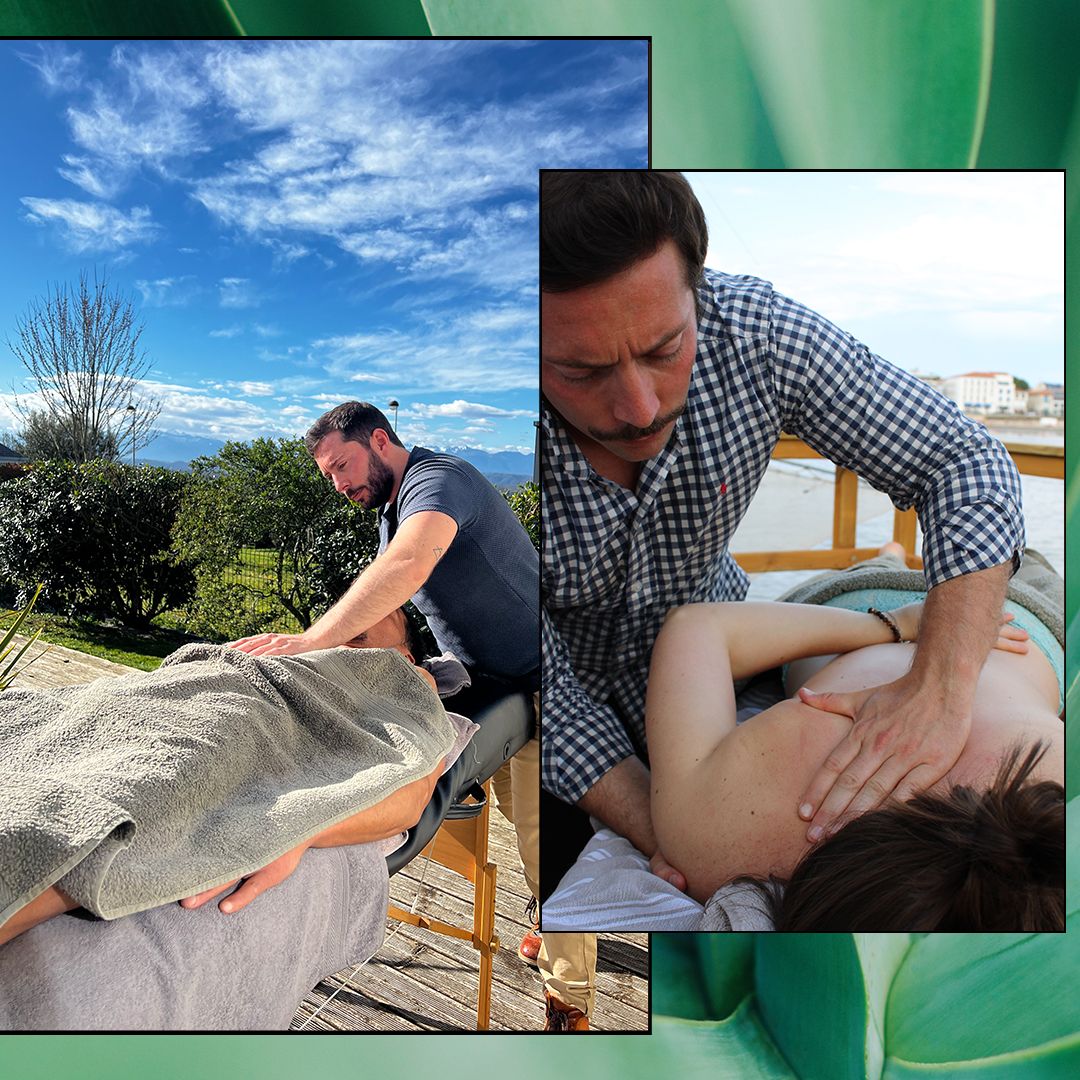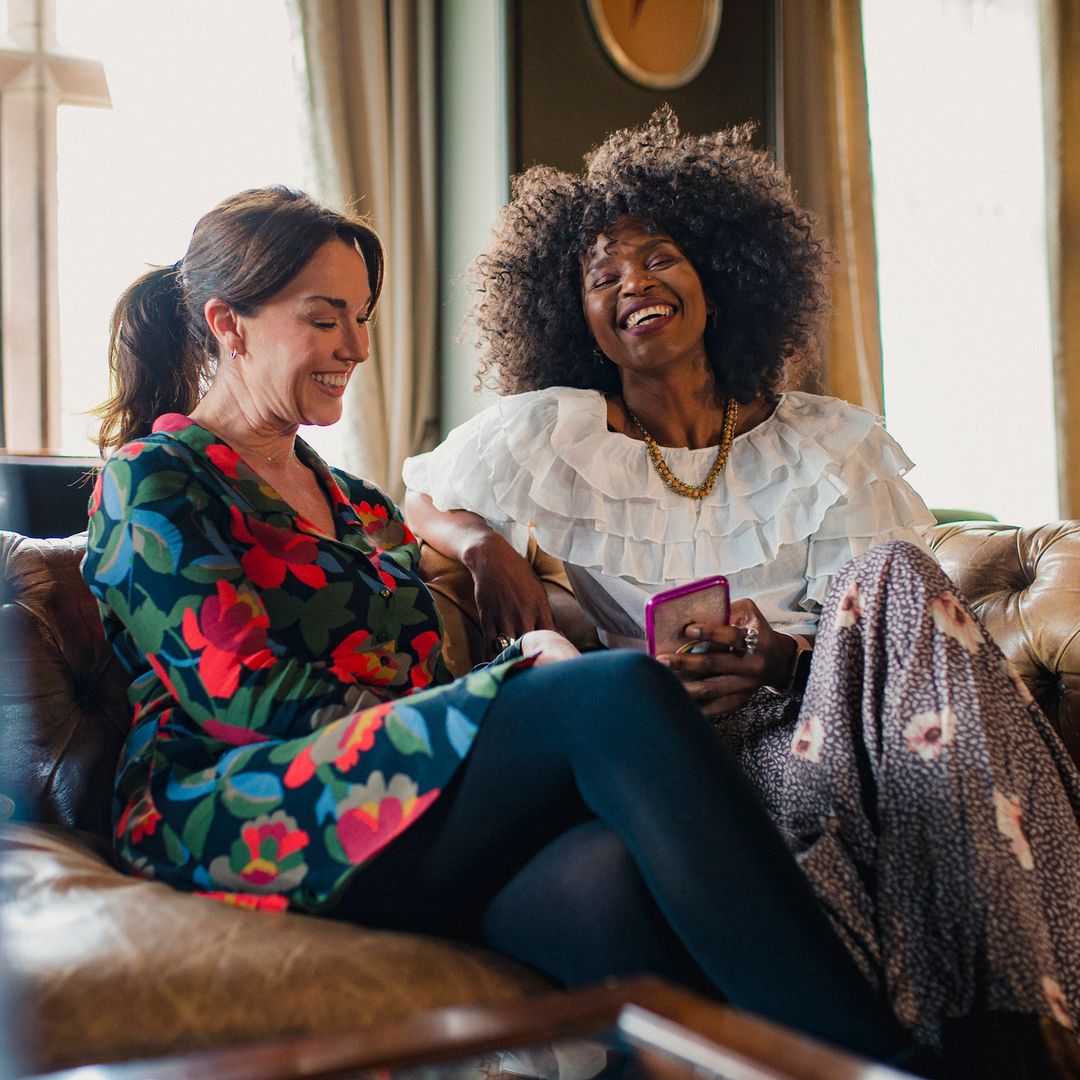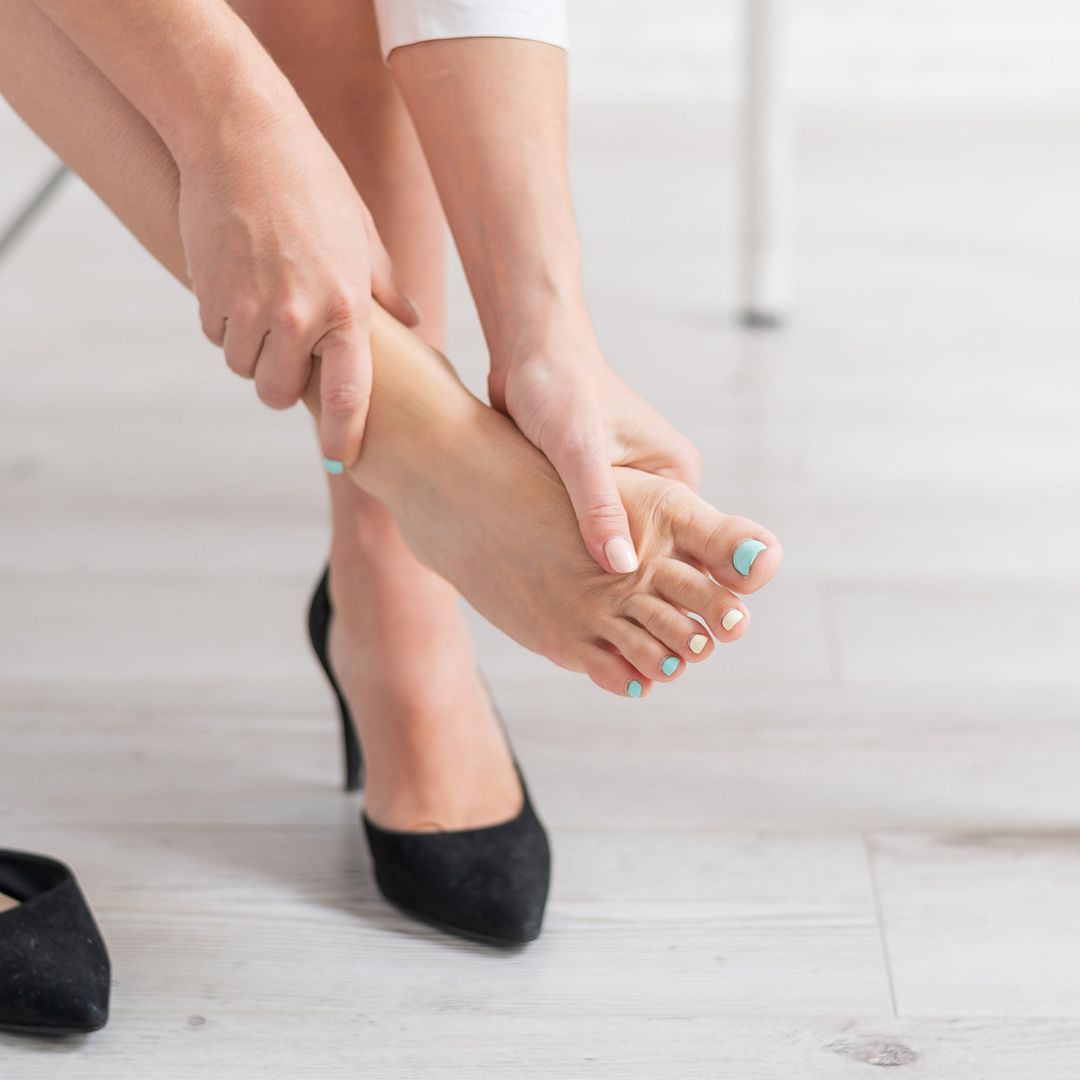900,000 women in the UK have quit their jobs because of the menopause. These numbers are a stark reminder of the lack of support in place for women going through the menopause in the workplace, and Sarah Cale, 54, founder of Positive Menopause and an office manager and PA, is just one woman who struggled with her career. She began showing symptoms of the menopause at 43 years of age, and found her battle particularly hard as she worked in the construction industry – largely dominated by males. Here, she shares her story with HELLO!.
SEE: 'I had no choice but to quit my job because of the menopause': one woman tells her story
WATCH: The Countess of Wessex shows support for menopause campaign
"My duties and responsibilities at work didn’t change when I went into the menopause, but I did. I went from being very confident and in control of my working day to second-guessing everything I did. I struggled with simple tasks and would constantly worry that I had messed up somewhere. Managing finances, payments, wages, and being responsible for many of my managing directors personal duties put an extreme amount of pressure on me.
"Although this was something I had done for many years, I was now feeling stressed and worn out, not to mention extremely emotional and angry; in the first instance, I just put it down to my autoimmune disorder. I thought that I may need my medication changed or that my underactive thyroid required checking. However, I knew there had to be more to it because I also suffered from other symptoms such as dry skin, dry vagina, and generally feeling under the weather.
SEE: A guide to menopause employment law: menopause leave, existing menopause workplace policies and more
Sarah started going through the menopause when she was 43
"I brushed how I had been feeling under the carpet. I felt that if I admitted a problem with my mental wellbeing, my boss would believe that I was weak, probably because I am the kind of person that always has to be in control. Working in the construction industry for the majority of my life, which is well known for being a predominantly male sector, taught me to be tough so that I would not be treated any different from any male colleagues. Unfortunately, this often isn’t the case, and women are seen as the weaker sex within this industry.
"So, I waited until it got so bad that I ran out of work in floods of tears, not knowing where to turn. I had consistently felt as though I had a dark cloud following me around. One that continually clouded my judgement and made me feel unworthy. Still, I dealt with it alone.
"Working for a small construction company, there is no HR, and my manager didn't live local anymore, so I didn’t feel as though I was in a position where I could ask for help. I worked it out by becoming proactive, working on my mindset and getting the support I needed to make a difference to my mental and physical wellbeing.
SEE: 36 symptoms of menopause and how to treat them – expert advice
MORE: Penny Lancaster breaks down as she details menopause and husband Rod Stewart's role - watch
Sarah founded Positive Menopause in a bid to support other women in the workplace
"I didn't consider leaving my job because I knew that I could work through how I felt. I knew that if I took control of my well-being, I would continue working within my role. However, I am aware that many women do not feel this way and that because of their roles and the responsibility that comes with it, they cannot continue to work. Having to leave a job with uncertainty saddens me, as I know most women have approached their employer asking for some support, while their requests have been revoked.
"I now know that in the same way that I felt alone and let down in so many ways, including being given the right tools to navigate menopause, so do so many other women. That is why I initially started Positive Menopause, a community support group. That was six years ago. The support group has developed into an online platform that provides workplace education, resources and support. I aim to ensure that as many women as possible have someone they can speak to just so that they struggle less than I did.
RELATED: Penny Lancaster discusses 'horrific' menopause symptoms in candid interview
"I have learned that so many women have no idea where to turn and often don’t understand menopause themselves. Employers need to understand that every woman is different, that by having compassion for women during the menopause, they will create an inclusive company. Employers should see women going through the menopause as outstanding, strong, and a continued asset to the development of their company.
"Policies that look at each department instead of being generic need to be put into place. Policies that take into account working environments for all employees, not just those that may work in administration roles. Policies that are accessible to all women and all women have had a voice in completing those policies.
READ: Davina McCall shares glowing make-up free selfie with important menopause message
"The T is often crossed, and the I dotted to ensure that companies do everything by the book. Those policies are then usually placed in a draw collecting dust. There is no point in doing this; it is counterproductive. It is far better to give women solid support by creating wellness days, space for them to take five, a support buddy, and educating all staff members, including the men, on the symptoms of menopause. Even handing out downloads and leaflets that lead to open discussion is a step in the right direction.
"Language barriers need to be broken down so that women and men can discuss the menopause openly, instead of everyone being afraid to say anything. Fear of discussion creates unrest and makes individual women feel as though they are not valued.
"For me, working with the menopause now is entirely different to how it was six years ago. I have developed more resilience than I previously had, because I have a community of women who support one another and a husband and daughter who stand with me. I know that I am not alone, and I hope that one day all women will feel like this."
You can find more information about the menopause via HELLO!'s menopause hub, in partnership with charity Wellbeing of Women.
Make sure you never miss a ROYAL story! Sign up to our newsletter to get all of our celebrity, royal and lifestyle news delivered directly to your inbox.
